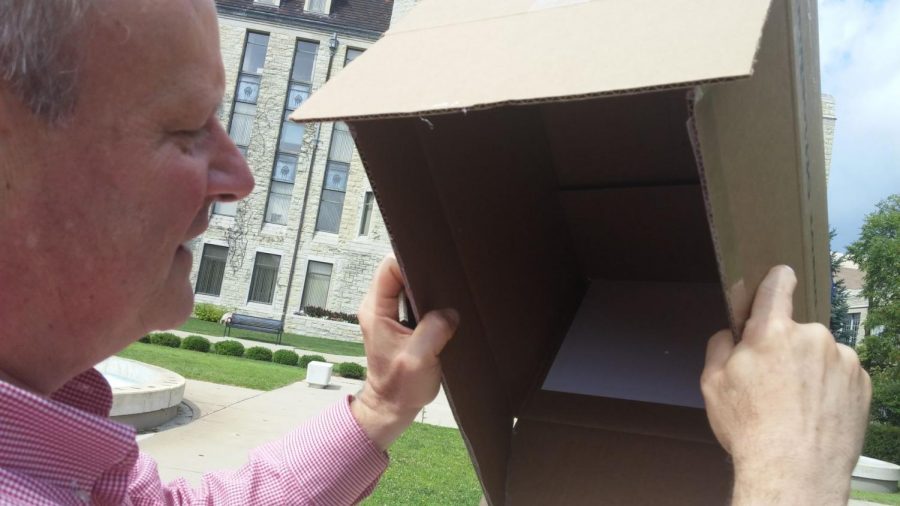Physics department to host eclipse event
August 19, 2017
The NIU physics department will hold an event at noon Aug. 21 behind Davis Hall to help DeKalb community members experience the upcoming solar eclipse.
The physics department will have two telescopes set up at the fountains behind Davis Hall so participants can safely view the eclipse. There will also be 100 pairs of eyeglasses for attendees to use.
In addition to telescopes and eyeglasses, Sam Watts, NIU STEM Outreach educator, said there will be an “engineering table” where attendees will be able to craft together a safe way to view the eclipse with paper plates.
Although the DeKalb area is expecting a partial eclipse, Physics department chairperson Laurence Lurio estimates 90 percent of the sun will be covered.
The path of totality will begin in Oregon at 10:16 a.m. PDT and end in South Carolina at 2:48 p.m. EDT, according to NASA’s webpage. Carbondale, Illinois, will experience the longest duration of the totality and it’s estimated the area will have complete coverage of the sun for two minutes and 40 seconds, according to NASA.
Lurio said those who are within the 70 mile path of totality may be able to see the stars and will experience a drop in temperature.
“It’s very rare for a full eclipse to cross the continental U.S. with a lot of people being able to see it without having to travel to it,” Lurio said. “It’s kind of a reminder that all this stuff about planets, stars and astronomy is real and it affects us, and sometimes whacky things happen.”
Watt said the next eclipse, which will again reach a 100 percent totality in Carbondale, Illinois, is projected to occur April 8, 2024.
Although the majority of the sun will be covered, Lurio said it was important to use approved eyewear or projectors to avoid staring directly at the sun.
Pati Sievert, NIU director of STEM Outreach said simply using a piece of aluminum foil with a pinhole in it s another option people can use to see the eclipse without causing damage to their sight.
“We are all sacrificing our trip to see the totality to be good citizens and share this with the public,” Sievert said.







